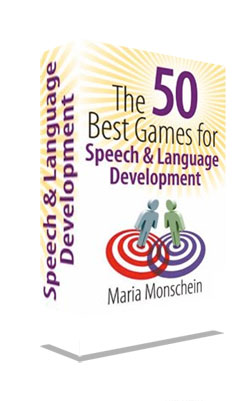Get Your Toddler Talking
Whatever your child's first words are, you can be sure you will remember and cherish that moment forever.
Some children take to speech really quickly and easily; others sometimes need a bit of help to make them into a little chatterbox.
If your toddler is not speaking as much or as clearly as you would like them to, don’t worry. Some children just need a bit of extra encouragement and you will soon be wishing for a moment’s peace. If you are concerned about your toddlers speech, have a look at speech delays in toddlers.
There are lots of tips and techniques you can use to help to encourage your toddler to say more and get your toddler to speak more clearly.
improve your toddlers behaviour.
All these techniques are not going to flip the switch and get your toddler talking over night. These techniques should be used as a long term solution and for the best possible outcome, I would recommend using a number of the techniques rather than just one or two.
Although this is a lot harder and needs more input from you, you will see better results and they will get your toddler talking a lot more quickly.
Play games to get your toddler talking
Whistles, flutes, blowing bubbles. These sorts of games are great fun for your toddler (and you) and they are really useful for helping to develop the muscles around your toddler’s mouth.
The muscles around your toddler’s mouth might not have formed properly yet. This means your toddler may struggle to make certain sounds and say certain words. By giving your toddler these types of activities, you are helping to improve and develop these muscles and therefore improve their speech, all whilst they are having fun.
Repetition to develop your childs speech
By repeating words, your toddler will pick them up a lot faster. You will probably have seen mums saying, “mum mum mum” to their young baby, and as it turns out, a lot of children’s first word is mum. By continually repeating the word, your toddler will pick up the sounds, and copy how your lips move to form the word.
This will work with any word and if you repeat it enough, toddlers will eventually get fed up with you saying it and say it themselves.
Talk to your child to encourage your toddler to talk to you
Let your toddler know it is OK to talk. Even from a young age, your baby knows when you are talking to them. Tell them you are going to do the washing and then make lunch.
Obviously they will not respond and offer to help out (be greatful if they ever offer to help out before they are in their twenties!!) but they are learning that it is OK to talk and communicate.
This is especially important if you only have one child in a quiet house. As your toddler grows, it is important that they know it is alright to talk and they learn this by you talking to them.
toddler anxiety.
Story time to get your child talking
Reading to your toddler will help them to speak and will help to stop speech delays in toddlers.
When you read to them, speak in a slow, clear voice. When you are reading to your toddler, encourage their interaction. If there are one or two words repeated through out the book, pause and encourage your toddler to say the one word. Ask your toddler questions at the end.
This encourages your toddler to develop their voice in a calm, one to one environment and helps get you toddler talking.
Singing time to encourage your toddler to speak
Singing, dancing and playing instruments are great fun - and a great way for you to destress too.
Repeating the same songs means your toddler will learn the words and will be able to fill in blanks. Singing is great way to improve your child's speech and is good fun for your toddler (although it may drive you mad).
Use whole sentences to improve your toddlers speech
Use whole sentences when talking to your toddler, instead of just one or two words. For example, instead of saying “drink?” say “would you like a drink?”.
Although it may only seem like a simple thing, saying the full sentence encourages your toddler to listen to more words and therefore they are more likely to repeat them.
Correct your child to improve speech delays in toddlers
If they say “we goed to the park today” correct them and say “we WENT to the park today”.
Picking up mistakes is important because otherwise your toddler will get in the habit of saying things in a particular way.If you have ever learnt a foreign language, you will know that the logical way of saying things is not always the correct way of saying things. So correct your toddlers speech so they learn correctly and get rid of any bad habits.
Just make sure you are correcting your toddler in a constructive way to build their self esteem.
Play with their own age to encourage your toddlers speech
Your toddler’s speech and confidence will grow massively when they play with children their own age. It may not always be grammatically correct, but the fact they are using their speech to communicate and developing their facial muscles is great.
Seeing other children talk is also a great way of encouraging your toddler to talk.
All these techniques will encourage your toddler to speak and develop pronunciation and grammar.
None of these techniques are an over night fix, but a long term solution to stop toddler speech delays and get your child talking and driving you crazy when they wont stop chatting.

